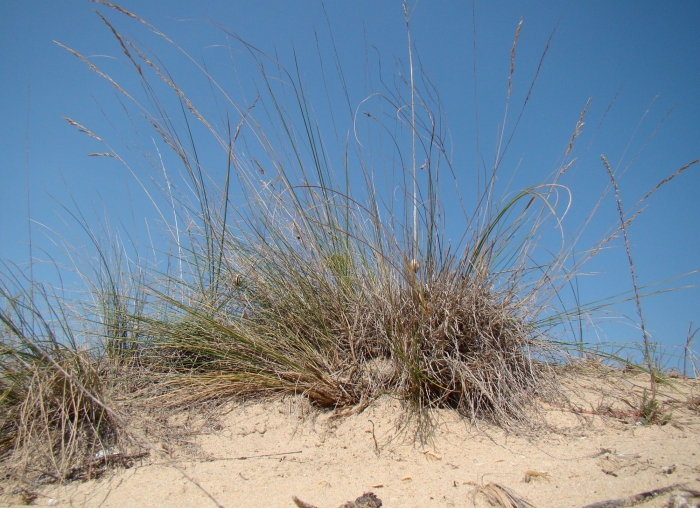Becker’s Fescue
(Festuca beckeri)
Becker’s Fescue (Festuca beckeri)
/
/

Юрий Данилевский (Yuriy Danilevsky)
CC BY 4.0
Image By:
Юрий Данилевский (Yuriy Danilevsky)
Recorded By:
Copyright:
CC BY 4.0
Copyright Notice:
Photo by: Юрий Данилевский (Yuriy Danilevsky) | License Type: CC BY 4.0 | License URL: http://creativecommons.org/licenses/by/4.0/ | Rights Holder: Юрий Данилевский (Yuriy Danilevsky) | Publisher: iNaturalist | Date Created: 2015-08-22T03:08:53-07:00 |












Estimated Native Range
Summary
Festuca beckeri, commonly known as Becker’s Fescue, is a perennial grass species native to steppe and open woodland habitats in Europe, Central and Western Asia. It typically grows erect culms ranging from 8 to 24 inches in height, featuring light brown butt sheaths at the base. The leaves of Becker’s Fescue are filiform and conduplicate, presenting a light green color, smooth texture, and measure 0.12 to 0.28 inches in width. Its inflorescence is a linear, open panicle that spans 2.4 to 5.5 inches in length, with solitary elliptic spikelets that each contain 4-6 fertile florets.
Becker’s Fescue is valued for its adaptability to various soil types and its drought tolerance, making it suitable for xeriscaping and naturalistic plantings. It is often used in meadow gardens, as ground cover, and for erosion control due to its dense growth habit. This grass prefers full sun to part shade and thrives in well-drained soils. While it is not known for significant pest or disease issues, it can become less vigorous in overly moist or fertile conditions. Its low maintenance requirements and ability to withstand dry spells make it a practical choice for gardeners seeking a hardy grass species.CC BY-SA 4.0
Becker’s Fescue is valued for its adaptability to various soil types and its drought tolerance, making it suitable for xeriscaping and naturalistic plantings. It is often used in meadow gardens, as ground cover, and for erosion control due to its dense growth habit. This grass prefers full sun to part shade and thrives in well-drained soils. While it is not known for significant pest or disease issues, it can become less vigorous in overly moist or fertile conditions. Its low maintenance requirements and ability to withstand dry spells make it a practical choice for gardeners seeking a hardy grass species.CC BY-SA 4.0
Plant Description
- Plant Type: Grass
- Height: 1-2.5 feet
- Width: 1-2 feet
- Growth Rate: Moderate
- Flower Color: N/A
- Flowering Season: Summer
- Leaf Retention: Evergreen
Growth Requirements
- Sun: Full Sun, Part Shade
- Water: Low
- Drainage: Medium, Fast
Common Uses
Border Plant, Deer Resistant, Drought Tolerant, Erosion Control, Low Maintenance, Rabbit Resistant
Natural Habitat
native to steppe and open woodland habitats in Europe, Central and Western Asia
Other Names
Common Names: Becker’s Blue Fescue
Scientific Names: , Festuca beckeri, Festuca beckeri, Festuca beckeri subsp. laeviuscula, Festuca beckeri subsp. polesica, Festuca beckeri subsp. sabulosa, Festuca beckeri var. baicalensis, Festuca laeviuscula, Festuca ovina subsp. beckeri, Festuca ovina var. glauca
GBIF Accepted Name: